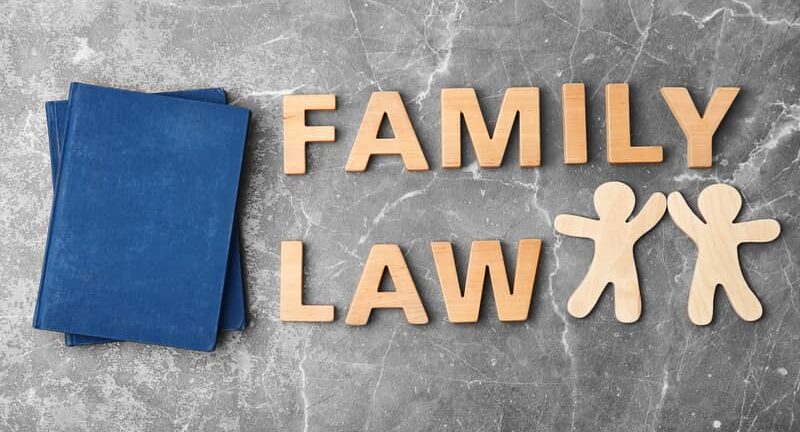
 The North Carolina Court of Appeals ruled this week on a longstanding Charlotte child custody and contempt of court legal issue, described as, “an exceptionally contentious and prolonged custody battle” between a father and mother in Mecklenburg County Family Court. Litigation began in January 2007 involving the custody of two children, one of whom has since “aged out” and has been the subject of various Show Cause Orders, Motions to Show Cause, Charlotte child custody and Contempt of Court proceedings since he was 11 years old.
The North Carolina Court of Appeals ruled this week on a longstanding Charlotte child custody and contempt of court legal issue, described as, “an exceptionally contentious and prolonged custody battle” between a father and mother in Mecklenburg County Family Court. Litigation began in January 2007 involving the custody of two children, one of whom has since “aged out” and has been the subject of various Show Cause Orders, Motions to Show Cause, Charlotte child custody and Contempt of Court proceedings since he was 11 years old.
Another daughter, who is now 17, is the subject of the present appeal in the Charlotte Family Court matter entitled Grissom v. Cohen. To download a copy of the NC Court of Appeals opinion as published on October 2, 2018, see: Charlotte Contempt of Court Child Custody 2018
The extent and nature of the litigation in the matter is remarkable, involving four different Charlotte Family Court Judges, 600+ findings of fact in 2 Custody Orders and at least two full child custody trials in Mecklenburg County. While truly extraordinary in scope and duration, it does serve as an example of the lengths to which parents will fight for child custody and visitation in Charlotte – Bill Powers, Divorce Lawyer Charlotte NC
Contempt of Court and Charlotte Child Custody Issues
In the latest round of litigation and appeals from a ruling by the Honorable Matthew Osman in Charlotte Family Court, the Plaintiff in the appeal (the mother Ms. Grissom) complained that the trial judge made a mistake by, “Failing to hold Father in civil contempt” and in effect, ending or eliminating the mother’s primary custody of a child.
Specifically, the attorney for the mother, a divorce lawyer Charlotte NC, alleged the district court judge:
- Applied the wrong Burden of Proof, confusing the differences and standards of proof, and who had the burden of proof, between
- Civil Contempt of Court – Greater Weight of the Evidence
- Criminal Contempt in Charlotte NC – Beyond a Reasonable Doubt
- Failed to acknowledge or enforce an alleged “Forced Visitation Order”
- Refused to find the father in Contempt of Court
The Court of Appeals disagreed on several legal issues, specifically writing the Plaintiff, “Makes the bold and legally impossible request that this Court make the factual determination” that the Defendant in the case (the father Mr. Cohen) violated the Modified Custody Order, that the father “willfully violated” the Custody Order, demanding the NC COA reset the case for trial for civil contempt.
One would be remiss in failing to note who wrote the Grissom v. Cohen opinion for the Court of Appeals, the Hon. Donna Stroud.
To say her Honor is dedicated to precision, especially in drafting Orders in civil court involving family law cases, and the associated legal standards applied at the appellate level to NC Family Law matters, is an understatement. The Grissom case, as it will likely come to be known among divorce lawyers in Charlotte and other family court jurisdictions, discusses a wide range of legal issues involving contempt of court, the burdens of proof for Show Cause Orders, the roles of family law judges, and the realities of child custody disputes.
Judge Stroud recently spoke to a Charlotte divorce lawyer seminar (continuing legal education CLE), sponsored by the Mecklenburg County Family Law section, titled, “Writing Good Orders – What Judges Want Family Law Lawyers To Know About Drafting Orders.” The Grissom v. Cohen ruling reminds family law attorneys there are important differences and distinctions between criminal contempt vs civil contempt.
Some of the more “big picture” legal issues in Grissom focus on:
- Family Court Judges in Charlotte and their duties- the “Trial Judge” has the responsibility to be the Finder of Fact. In divorce and family law disputes, the district court judge hears testimony at trials and during motions, listens to the evidence, weighs the evidence, resolving differences and conflicts in the evidence presented between the parties, and thereafter makes Findings of Fact and Conclusions of Law.
- The Appellate Courts in NC review, in family law cases, things like the appropriate Standard of Proof, Conclusions of Law, and whether the Conclusions, as a matter of law, are supported by the Findings of Fact. Generally, the Court of Appeals rules on whether legal issues or matters of contention, regarding the application of the NC Family Laws (including child custody, child support, contempt of court, etc.), were proper. Put simply, appellate courts review the application of the NC Family Laws and, when necessary, interpret the N.C.G.S. and other constitutional considerations. The Family Court Judge answers questions like, “Who gets the kids?” and “How much is child support in North Carolina?”
- The appellate courts also address technical differences between the Findings of Fact, Conclusions of Law, and the roles of the Courts. The Court of Appeals in family law cases does not review, on a de novo (“of new” or “for anew” in Latin) basis, contempt orders. They do not “re-try” the case or change legal rulings of a family law judge, even if they may have personally ruled another way. Appellate courts rule on the law, giving wide discretion to rulings by family court judges regarding factual issues, absent an abuse of discretion. Generally speaking, family court judges interpret evidence and decide factual disputes. Appellate judges look at the legal rulings, making certain the NC Family Laws are followed.
The legal standard of review in Charlotte family law cases involving contempt of court trials is whether there was competent evidence to support the Findings of Fact by the trial judge and further whether the Conclusions of Law by the Family Court judge were supported by the Findings of Fact – Bill Powers, Charlotte Divorce Lawyer
A key takeaway from the ruling is that unchallenged Findings of Fact are presumed accurate and otherwise supported by the competent evidence. That means they cannot be challenged on appeal, as they are described by family law attorneys as, “Binding on Appeal.” That is not to say the Appellate Courts of North Carolina cannot review rulings by Family Court Judges. Legal conclusions or what family law lawyers call, “Conclusions of Law” may be reviewed de novo by the NC Court of Appeals.
Call Bill Powers, Divorce Lawyer Charlotte NC NOW: 704-342-4357
Related Posts
Equitable Adoption in North Carolina
The doctrine of Equitable Adoption is a judicially created “equitable” remedy...
Removal of a Child from an Unfit Parent
Chapter 7B of the Juvenile Code regarding Abuse, Neglect, and Dependency...

